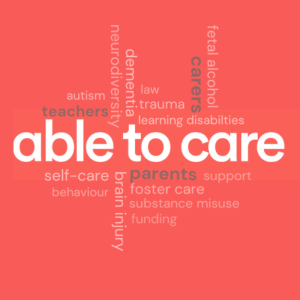
Friday Aug 02, 2024
Understanding the Mental Capacity Act: Empowering Caregivers and Protecting Rights
In this episode of the Able to Care podcast, hosted by Andy Baker and sponsored by Apple Training Support Ltd, we delve into the intricacies of the Mental Capacity Act and Deprivation of Liberty Safeguards. Inspired by feedback and a previous guest, Lorna, a specialist in this field, Andy addresses common misunderstandings and challenges associated with these laws. He outlines the key principles of the Mental Capacity Act, emphasising the importance of protecting and empowering individuals who may lack the mental capacity to make their own decisions. Andy also discusses the legal framework that safeguards both those making decisions and those on whose behalf decisions are made, ensuring that all actions taken are in the best interest and least restrictive to the individual's freedoms.
Key Timestamps: 00:00:00 - Introduction and Sponsorship 00:00:43 - Overview of the Mental Capacity Act 00:02:09 - Key Principles of the Mental Capacity Act 00:06:30 - Decision-Making and Capacity Assessment 00:14:47 - Deprivation of Liberty Safeguards (DoLS) 00:21:08 - Best Interests and Least Restrictive Options
Key Messages:
Understanding the Mental Capacity Act: The Mental Capacity Act is crucial for protecting and empowering individuals who may lack the capacity to make their own decisions. It provides a legal framework that safeguards both those making decisions and those on whose behalf decisions are made, ensuring their best interests are always considered.
Importance of Presuming Capacity: It's essential to always presume that an individual has the capacity to make their own decisions unless proven otherwise. This includes recognizing that making an unwise decision does not automatically mean someone lacks capacity. Supporting individuals in understanding and making their own choices is a fundamental principle.
Applying Deprivation of Liberty Safeguards (DoLS): The DoLS framework is important for ensuring that any restrictions on an individual's freedom are justified and the least restrictive options are used. It emphasises the need for a person-centred approach, assessing each individual's situation uniquely to protect their rights and well-being.
Enjoyed this episode? Don't miss out on future conversations! Make sure to subscribe to our podcast for upcoming episodes featuring insightful guests and fantastic hosts. Stay connected! Follow us on social media @abletraining on LinkedIn, Facebook and Instagram, @abletocarepodcast on TikTok) for behind-the-scenes content, updates, and community engagement. Want to delve deeper into topics discussed on the show? Visit our training website https://www.able-training.co.uk/ for valuable resources and courses to support caregivers on their journey. Thank you for listening! Your support means the world to us. Stay tuned for more inspiring conversations
No comments yet. Be the first to say something!